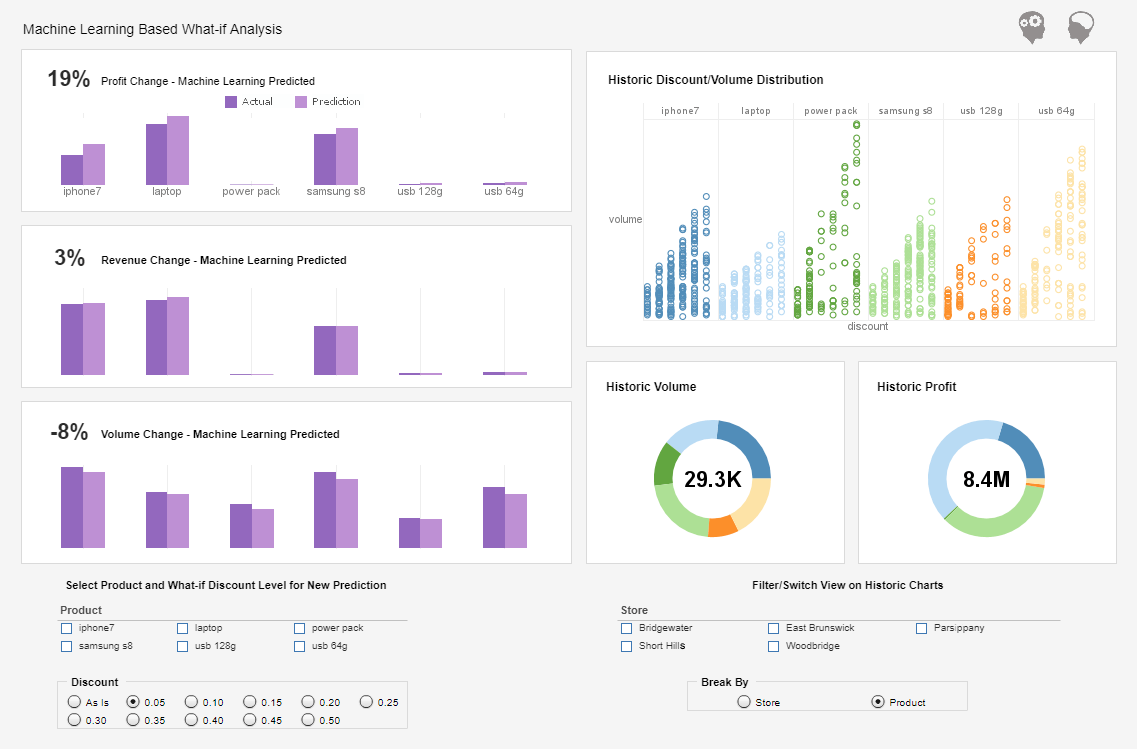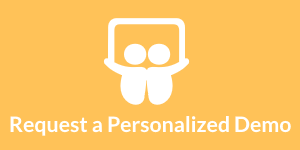The Most Transformative Machine Learning Applications
Below is the continuation of the transcript of a Webinar hosted by InetSoft on the topic of Enabling the Intelligent Enterprise with Machine Learning. The presenter is Abhishek Gupta, Product Manager at InetSoft.
Where are we witnessing the most transformative level of innovation in machine learning applications? The deep learning revolution that started in 2013 or so, this started out in the image processing space. It has since branched into video. It has branched into speech recognition and audio processing because the improvements on all new processing and quality on your mobile phones are largely driven by deep learning techniques that came into widespread use two years ago or so.
They are now increasingly being applied to natural language processing with very good results. I think the next frontier for the deep learning and machine learning revolution is to also upset this status quo on reasoning and logical conclusions. This is an area where the rule based systems -- best solutions for things like natural language processing or image processing before – still reign supreme.
We're at the next wave of deep learning based technology. It is very likely to also bring in and drive substantial improvements and assumption that help us address completing more use cases. I would definitely be reasoning as the next big frontier of what deep learning research can help deliver.
| #1 Ranking: Read how InetSoft was rated #1 for user adoption in G2's user survey-based index | Read More |
Which industries will be most impacted by these developments? They show a landscape of impacts all over the map. What seems to be different in how ML impacts these industries? For some it's the change in the core product or service that they are offering, like automotive manufacturers going to become self-driving car manufacturers.
It can even be complete business model innovations because if you have that car as a supplying thing, why would you want to own it if you could use it, and why shouldn't they move from selling cars to selling transportation by the kilometer or by the hour.
This was happening in other industries. Compressor manufacturers moved from selling compressors as capital equipment to its customers and moved to selling compressed air as a service by the cubic feet. As this mirrors transitions to a service business models, but it has transformed other industries like aviation engines and turbines quite some time ago.
In other areas ML is more about improving the efficiency and effectiveness of how an industry operates, particularly in areas where a lot of digital information plays a role like in the finance and insurance space, to name just one, as well as health care. The nature of the impact is the different. It can be product or service. It can be business model. It can be process change or process improvement. You can be sure that the impact of this is going to be felt across all industries over the next couple of years.
How Can Machine Learning Help Data Center Operatations?
Machine learning (ML) can revolutionize data center operations in several ways, offering more efficient resource management, enhanced security, and improved predictive maintenance. Here's an in-depth look at how ML can benefit data center operations:
-
Predictive Maintenance: ML algorithms can analyze historical data on hardware performance and failures to predict potential issues before they occur. By detecting anomalies in server behavior, cooling systems, or power usage, data center operators can proactively address problems, reducing downtime and maintenance costs.
-
Energy Efficiency: ML algorithms can optimize energy usage within data centers by analyzing patterns in power consumption, environmental conditions, and workload demands. This analysis enables operators to adjust cooling systems, allocate resources more efficiently, and implement dynamic power management strategies, leading to significant energy savings and reduced operational costs.
-
Resource Allocation: ML can optimize resource allocation by dynamically adjusting server configurations based on workload demands. Through predictive analytics, ML algorithms can anticipate spikes in demand and scale resources accordingly, ensuring optimal performance and minimizing wasted capacity.
-
Fault Detection and Resolution: ML techniques can automatically detect and diagnose faults within the data center infrastructure, such as network bottlenecks, server failures, or cooling system malfunctions. By continuously monitoring system health and performance metrics, ML algorithms can identify issues in real-time and provide recommendations for resolution, improving overall reliability and uptime.
-
Security: ML algorithms can enhance data center security by identifying and mitigating potential security threats, such as malware, intrusion attempts, or anomalous user behavior. By analyzing network traffic patterns and user activity, ML models can detect suspicious activities and trigger automated responses or alerts to prevent data breaches or unauthorized access.
-
Capacity Planning: ML algorithms can assist in capacity planning by analyzing historical data on resource utilization and demand patterns. By forecasting future capacity requirements, data center operators can make informed decisions regarding infrastructure investments, expansion plans, and workload distribution, ensuring scalability and cost-effectiveness.
-
Workload Optimization: ML algorithms can optimize workload placement and scheduling to maximize resource utilization and performance. By analyzing workload characteristics and dependencies, ML models can determine the most efficient allocation of resources across servers and clusters, minimizing latency and improving overall system throughput.
-
Environmental Monitoring: ML algorithms can monitor environmental conditions within data centers, such as temperature, humidity, and air quality, to ensure optimal operating conditions. By detecting deviations from predefined thresholds, ML models can alert operators to potential risks of equipment damage or performance degradation, enabling timely intervention to mitigate these risks.
| Previous: Machine Learning Use Cases That Were Impossible Before |


